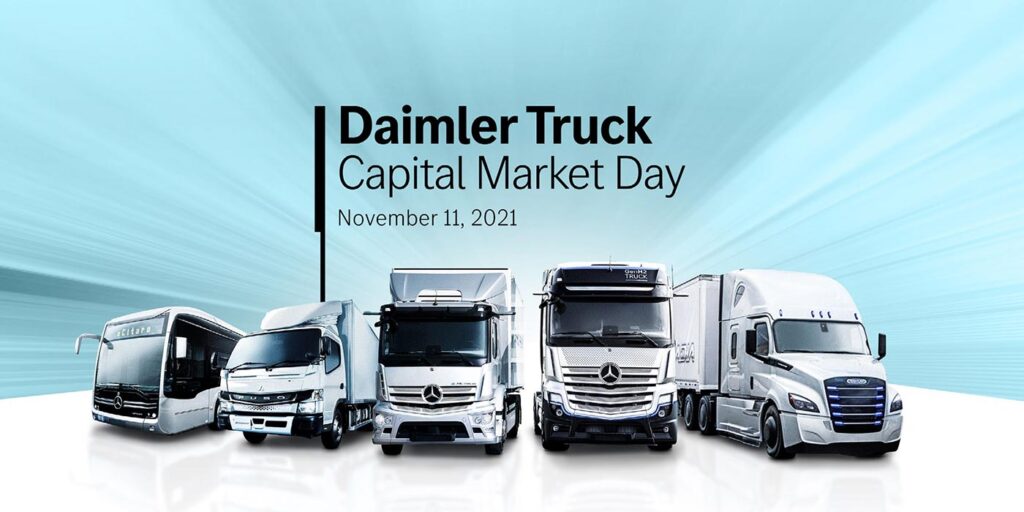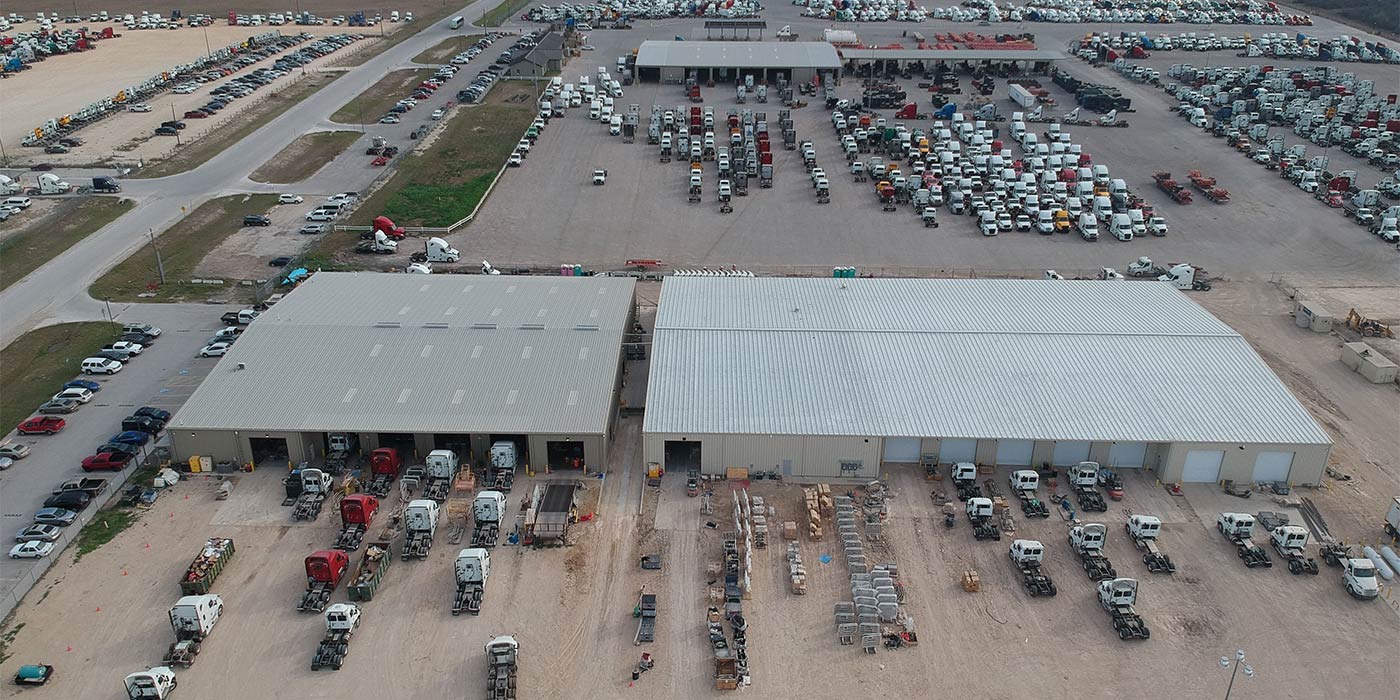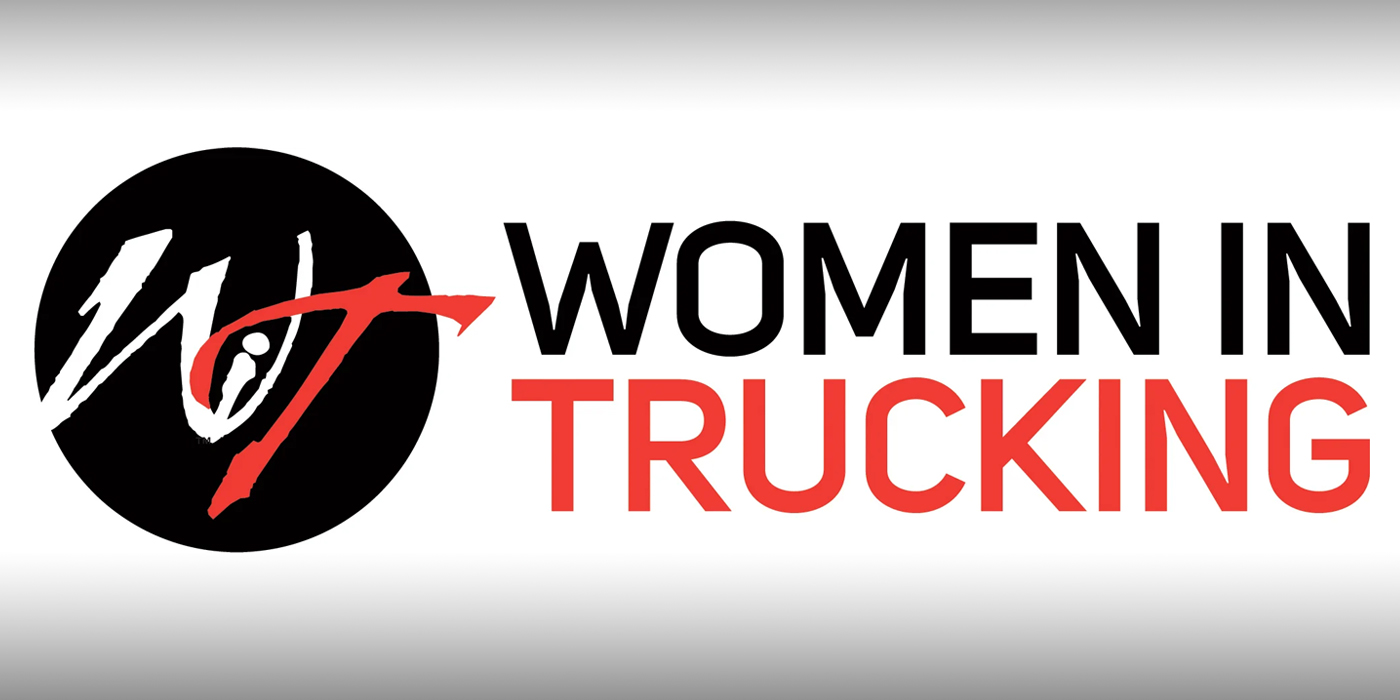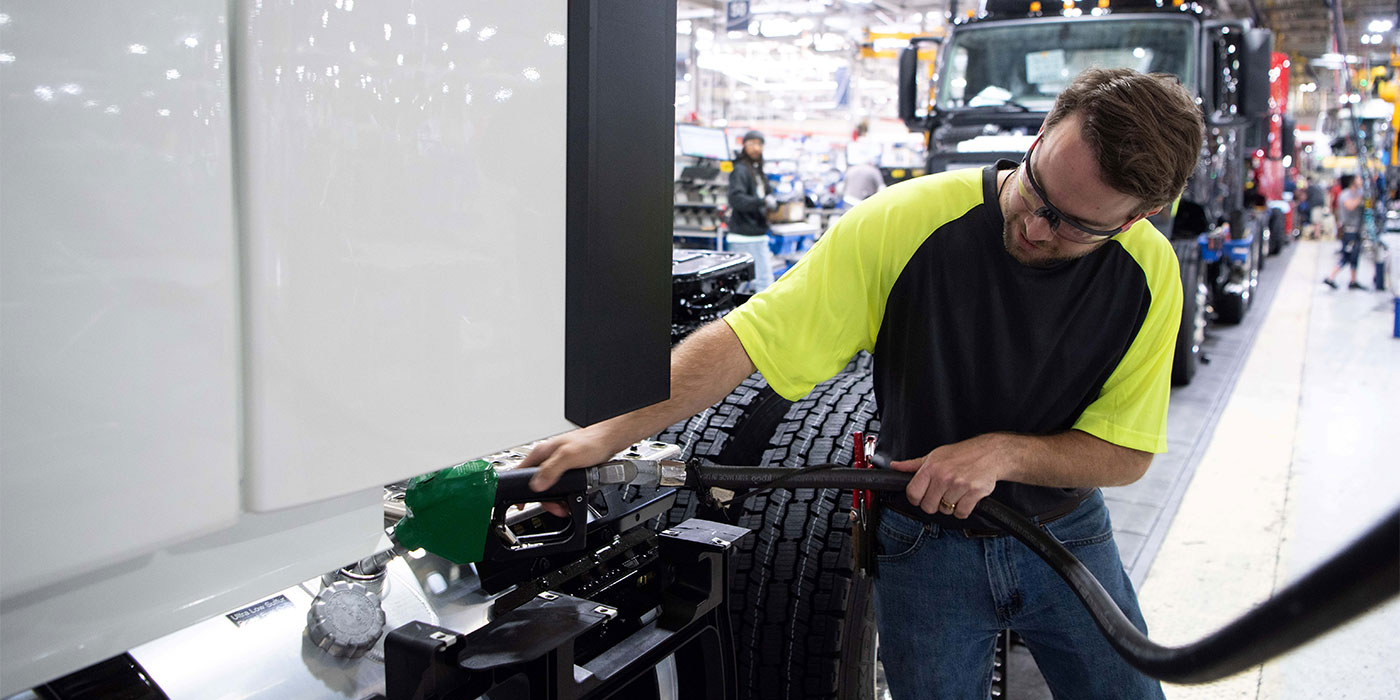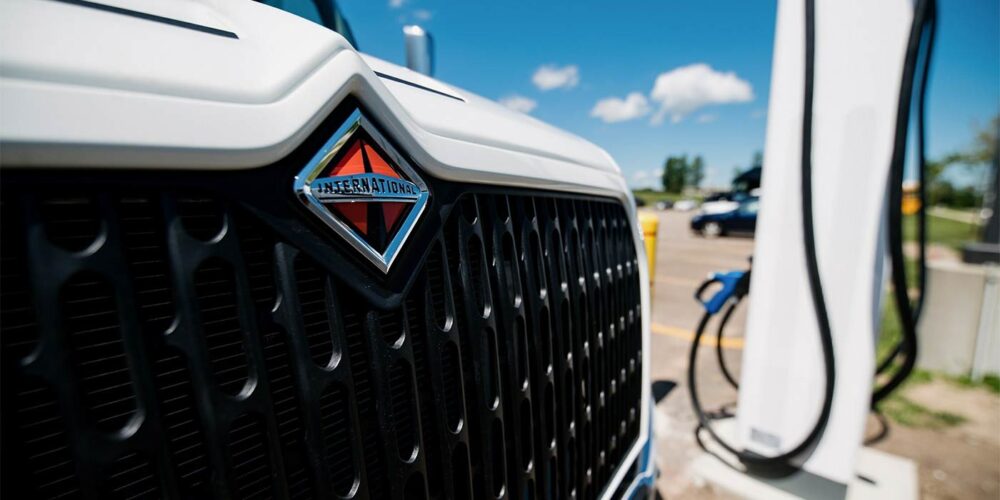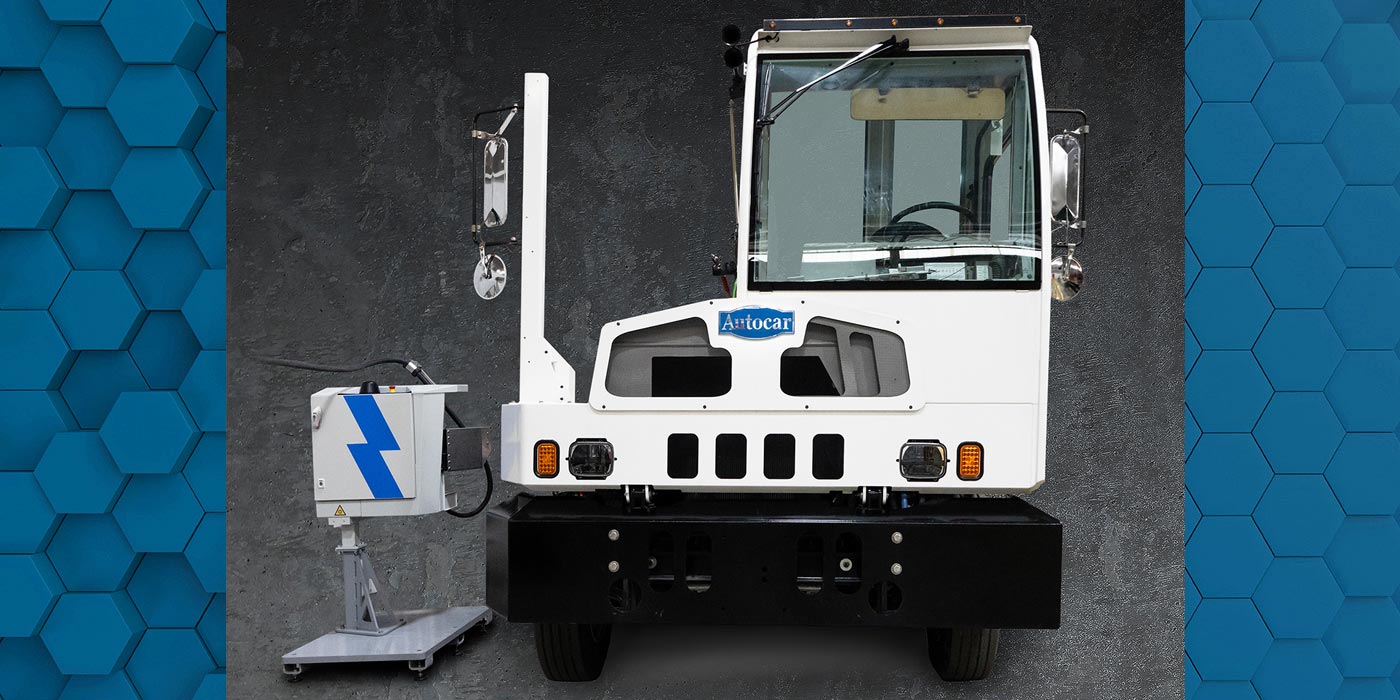Prior to its intended stock market listing in December 2021, Daimler Truck hosted its Capital Market Day, revealing profitability ambitions for each segment and financial discipline. In addition, Daimler Truck’s management board, led by CEO Martin Daum, presents further strategic and technological objectives. Following the supportive general meeting, the company is also planning its listing on the Frankfurt stock exchange for Dec. 10. Subsequently, Daimler Truck says it expects to qualify for the DAX–the group of Germany’s most valuable listed companies–in the first quarter of 2022.
“We have a clear ambition for Daimler Truck: We’re committed to achieving higher profitability and to going full speed to win the race to zero emissions. We can’t wait to make our company even stronger. Ahead of the planned public listing, we are ready for independence and for unlocking our full value potential”, said Martin Daum, CEO of Daimler Truck AG.
New partnerships for technology and sustainability
Andreas Gorbach, CTO and head of the truck technology group, explained Daimler Truck’s technology strategy is based on three pillars. Firstly, investments for the conventional ICE combustion engine in the powertrain will be further reduced. Besides partnering with Cummins for medium-duty engines, Daimler Truck Group also seeks partnerships for heavy-duty engines to share the required investments to implement the upcoming emission regulations. Secondly, the majority of R&D spending is to be redirected to zero-emission vehicle (ZEV) technologies by 2025. Here, the company is focusing on both battery electric vehicles (BEV) and hydrogen-based fuel cell electric vehicles (FCEV).
Regarding Daimler Truck’s goal to establish a network of 150 hydrogen refueling stations and 5,000 heavy-duty hydrogen trucks by 2030, in addition to the recently announced collaboration with Shell, the company announced two additional partnerships: Together with BP, Daimler Truck strives to accelerate the H2 infrastructure development in the UK. In another partnership with Total Energies, the company is likewise aiming to enhance the H2 infrastructure in the major transport markets of France and Benelux. Thirdly, Daimler Truck will push software development with the next evolution of the mechatronic architecture and a truck-dedicated operating system.
Benchmark profitability: Segments are accelerating performance
John O‘Leary, President and CEO of Daimler Trucks North America (DTNA), said that DTNA plans to continue to maintain its strict cost discipline and defend its on-highway business in the North American segment while capturing an increased share of the vocational market. DTNA will also continue to further expand its aftermarket capabilities to safeguard customer experience, increase revenue generation and strengthen its connected vehicle services offerings.
Karl Deppen, who will take over as head of Truck Asia (TA) on Dec., 1, said that the Asian business is already well on its way to achieving its ambitious goal of benchmark profitability. Through continued cost optimization and service expansion the segment plans to drive profitability and strengthen the position of the FUSO brand. BharatBenz is currently experiencing very strong growth in India and TA plans to further build on this success. Moreover, TA expects that China will serve as an important game-changer for the segment’s growth as it focuses on localizing to suit the market. With Daimler Truck’s experience regarding e-mobility as well as its battery and FCEV product pipeline, the segment is well prepared to cater for these opportunities in the future.
Stephan Unger, member of the board, responsible for Daimler Truck Financial Services (DTFS), provided a roadmap for leveraging the 40-plus year history of Daimler’s Financial Services Business into building a best-in-class segment focused exclusively on commercial vehicles. A multi-wave ramp-up of the portfolio, ongoing excellence in risk management, strict cost control from day one and the benefit of new IT systems will drive the segment to achieving its 14% adjusted return on equity ambition in 2025 under strong market conditions, he said. DTFS will drive enduring customer relationships, support sales of Daimler trucks and buses and provide critical insight, know-how and balance sheet strength to unlock the Services ambitions of the group.
Daimler Truck details financial ambitions for each segment
At the Capital Markets Day, Daimler Truck CFO Jochen Goetz reiterated the Group’s commitment to improve profitability and create value for shareholders. Daimler Truck’s ambition is to achieve more than 10% return on sales (industrial business, adjusted) by 2025, assuming strong market conditions. Based on its “every segment must deliver” approach, Daimler Truck’s top management announced margin range ambitions for its individual segments reflecting different macroeconomic conditions. In a 2025 scenario with strong market conditions, Daimler Trucks North America (DTNA) is aiming for a 12% adjusted return on sales, Mercedes-Benz for 10%, Truck Asia (TA) aims for an adjusted 9% return on sales and Daimler Buses for 7.5%. With Daimler Truck’s new financial services business the company is aiming for 14% adjusted return on equity. The company is working to improve resilience by significantly lowering the break-even point, thus to be able to achieve at least an adjusted 6-7% return on sales in the industrial business in 2025, even in adverse market conditions.
Daimler Truck says its 2021 adjusted return on sales is expected to be between 6-8%, despite semi-conductor shortages and rising raw material prices. In the course of the Capital Markets Day, the company also announced that given the progress already made, Daimler Truck aims to achieve its target to reduce fixed cost by 15% compared to 2019 as early as 2023 – two years earlier than announced in May at the Strategy Day. For 2022, the Group assumes an adjusted Return on Sales of the Industrial Business between 7-9%.

